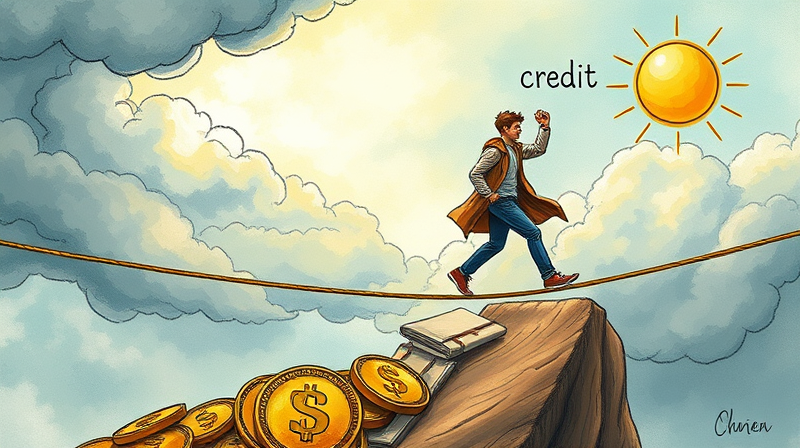
Losing a job can feel like the rug has been pulled out from under you. While the termination itself won’t appear on your credit report, the fallout can create a domino effect that impacts your financial standing. By understanding the risks and taking action now, you can protect your credit score and maintain your long-term financial health. This guide provides an inspiring, step-by-step plan to navigate unemployment with confidence and resilience.
When you lose your job, your credit score doesn’t automatically drop. It’s your ability to make timely payments that matters most. Payment history forms the backbone of credit scoring models, and any missed deadlines can trigger a decline. Late or missed payments on credit cards, loans, or your mortgage can have immediate effects on your score, leading to higher interest rates or even account closures.
Research shows that households experiencing unemployment are 2.5 times more likely to file for bankruptcy within a year of losing income. That equates to about 10 additional bankruptcies for every 1,000 job losses, and the consequences can persist for two to three years. Manufacturing workers face three times the risk of bankruptcy compared to non-manufacturing workers, highlighting the uneven impact across industries.
Credit isn’t just a number—it’s a critical lifeline. Revolving credit, such as credit cards or lines of credit, can temporarily replace roughly 29% of your lost annual income. This self-insurance lifeline can bridge gaps in your budget, helping you cover essentials until new work arrives. However, borrowing without a repayment strategy can spiral into a heavier burden, leading to increased future credit risk.
Failing to manage debt responsibly during a layoff can force you to choose between defaulting and depleting your savings. Either scenario puts your credit at risk and makes recovery slower. On the brighter side, maintaining consistent payments, even at the minimum level, preserves your credit standing and keeps doors open for future borrowing or job opportunities that require credit checks.
Facing unemployment isn’t just about reacting quickly—it’s about having a prebuilt strategy. By implementing these measures before job loss, you can reduce stress and protect your financial reputation.
Below are deeper insights into each tactic, illustrated with key action words to reinforce purpose and direction.
First, focus on building a cash reserve equivalent to three to six months of expenses. This cushion reduces the likelihood of missed payments if income disappears. Next, concentrate efforts on reducing high-interest credit balances, as these fixed costs can rapidly erode remaining cash when income is unstable.
Simultaneously, review and cut non-essential expenses—streaming services, memberships, and luxury items—to stretch every dollar. Keeping your spending aligned with core needs prepares you for sudden income changes without sacrificing essentials like housing or utilities.
Should your cash flow tighten, make sure to prioritize minimum bill payments across all accounts. Even a small, consistent payment maintains your standing and prevents late fees. If you foresee difficulty, contact creditors early to negotiate hardship plans or deferred payments; many lenders appreciate open communication and may offer forbearance or lower rates.
Lastly, track credit reports proactively every month to detect errors or fraudulent activity. Early discovery of discrepancies allows swift disputes and corrections, averting unwarranted score drops during your most vulnerable periods.
Unemployment Insurance (UI) serves as the first safety net. Apply as soon as possible through your state portal—programs like BEACON in Maryland streamline the process. Beyond base UI, special federal or state supplements can activate during recessions or emergencies. Staying informed about evolving benefits ensures you claim every dollar available.
Additionally, local nonprofits and workforce agencies often provide career counseling, training vouchers, and job placement assistance at no cost. These services accelerate your return to work and reduce reliance on credit, giving you more control over your credit health.
Even a brief period of unemployment can leave a lasting imprint on your credit report. Bankruptcies remain visible for up to ten years, and missed payments linger for seven. High debt levels and default judgments can further extend the timeline for full financial rehabilitation.
Damaged credit not only raises borrowing costs but can also limit employment opportunities. Many employers conduct credit checks as part of hiring, associating sound financial management with reliability. Poor credit may inadvertently narrow your job prospects, creating a cycle of hardship.
Waiting until unemployment strikes is too late. Embed these habits into your financial routine today. Create a budget that allocates a fixed percentage of income to savings before you receive your paycheck. Automate debt payments so they clear without manual intervention, preserving your credit history even if you’re distracted by job hunting or relocation.
Maintain an open line with lenders long before crisis hits. Developing relationships with lenders over time makes negotiations smoother when hardship strikes. Keep copies of your financial records organized and up to date—being prepared to present a clear plan can encourage creditors to extend more favorable terms.
Job loss is never easy, but it doesn’t have to spell financial ruin. With foresight and decisive action, you can protect your credit score, reduce stress, and emerge more resilient. By treating credit as a strategic asset rather than a last resort, you transform potential vulnerability into an opportunity for growth. Embrace these proactive planning steps now, and you’ll face tomorrow’s uncertainties from a position of strength—and confidence.
References













